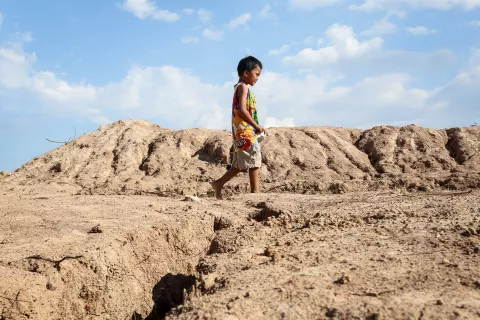Green Economy and Youth in Greater Mekong Region
Policy Briefs on Advancing an Inclusive Green Economy Through Empowerment and Participation of Young People in the Greater Mekong Region

Highlights
In order to identify insights into how adolescents and youth can meaningfully participate in Southeast Asia's ongoing green economic transition, UNICEF and UNESCO commissioned a three-country study in Cambodia, Thailand, and Viet Nam. Advancing an Inclusive Green Economy Through Empowerment and Participation of Young People in the Greater Mekong Region included consultations with more than 250 participants, including adolescents and youth aged 15–24 and key stakeholders from governments, businesses, and civil society organisations across the three countries with a particular focus on vulnerable groups. Drawing on the results and recommendations of the larger study, the policy briefs highlight youth awareness of climate change and environmental issues in the respective countries, opportunities available for young people to meaningfully contribute to climate change and green growth discourses, and recommendations for strengthening positive pathways to empowering young people through climate action and greener economies.






